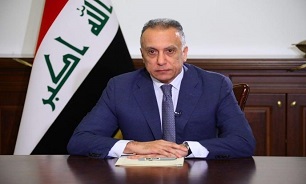 Speaking to the Iraqi News Agency, the head of the IRSRA, Hussein Latif, said that Al-Kadhimi is “aware of the importance of the issue of atomic energy”, following discussions held with French President Emmanuel Macron on Wednesday. Al-Kadhimi is scheduled to visit France next month, as part of a European tour.
Speaking to the Iraqi News Agency, the head of the IRSRA, Hussein Latif, said that Al-Kadhimi is “aware of the importance of the issue of atomic energy”, following discussions held with French President Emmanuel Macron on Wednesday. Al-Kadhimi is scheduled to visit France next month, as part of a European tour.
Latif added that Iraq is “looking forward to restoring its position in nuclear science, which it occupied in the 1970s and 1980s”, highlighting a recent resolution by the UN Security Council in support of Iraq’s renewed peaceful aspirations in the nuclear field.
The reactors will be able to help produce medical isotopes and pharmaceuticals, in addition to having agricultural and industrial applications such as seed irradiation, nuclear insect sterilisation for pest control, and production of radioactive isotopes with various industrial benefits, Latif explained.
The nuclear plant, which by estimates could take five years to construct, could also help solve Iraq’s electrical shortages, which in recent months have caused mass public outcry.
